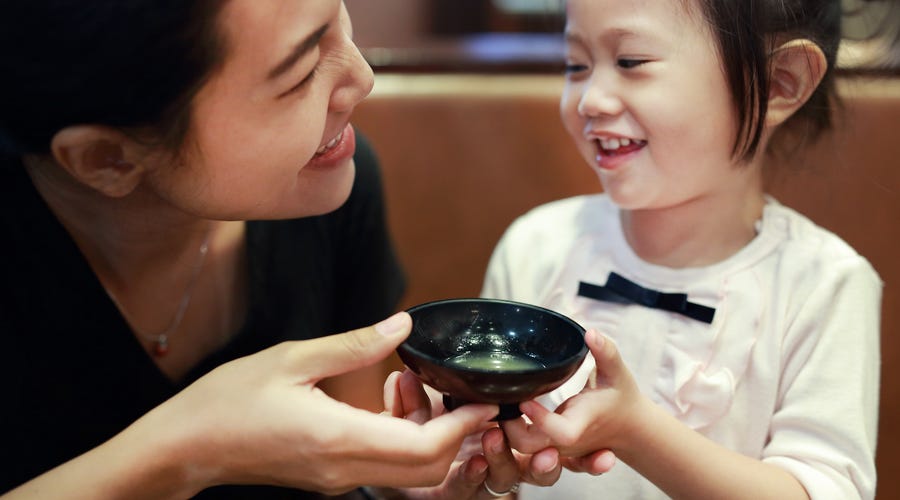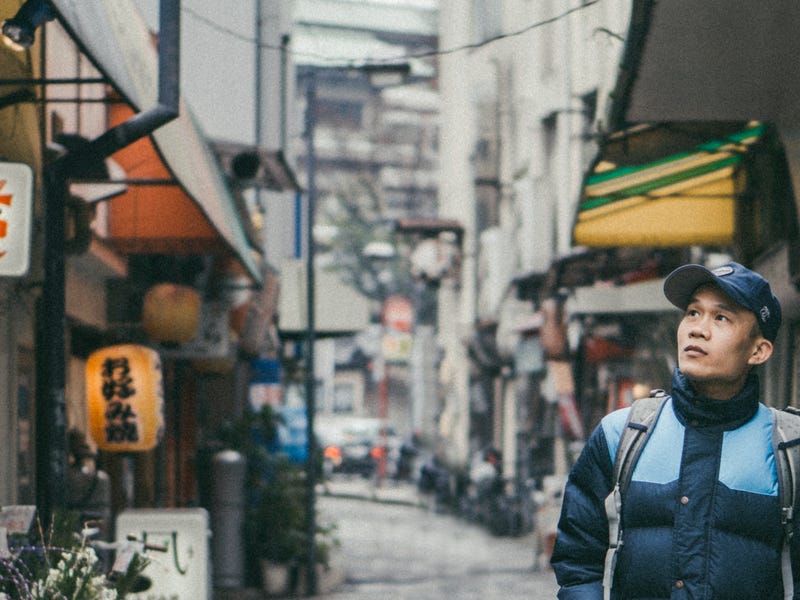
How to say thank you & you’re welcome in Japanese in 59 ways
Author: Mayumi Hikida
The Japanese word for thank you is 'arigato' — isn't it enough to know?
I'm here to write a 1K+ word article on this topic. So yes, there's A LOT you can learn about Japanese expressions of appreciation! You'll discover context-appropriate phrases and the mentality and culture behind them. Interested? (I choose to assume you are.) Cool!
Table of contents
- What does ‘arigato’ really mean?
- How to say thank you in Japanese
- Cultural considerations
- You’re welcome in Japanese
- Japanese thank you songs
- Yonde kurete arigatō!
Anatomy of ‘arigato’
The word ありがとう (arigatō) is derived from the old adjective '有り難し' (arigatashi). It means 'rare', therefore 'valuable'. Its adverb form '有り難く' (arigataku) became '有り難う' (arigatō), which is used to this day.
If you've heard the theory that 'ありがとう' came from 'obligado', the Portuguese word for 'thank you', it's nothing but a myth.100%.
In this article, you'll see a couple of ways 'ありがとう' is written in English alphabets. Before it confuses you, I'll clarify the difference.
Arigatō: The bar on the 'o' means an elongated sound. I spell this way in this blog as it represents the natural pronunciation.
Arigato: It's probably the most commonly seen spelling. If you don't elongate the last 'o', it might sound casual, blunt, or cute, depending on how you say it.
Arigatou: A lot of people also spell like this as it corresponds with each hiragana (あ-a, り-ri, が-ga, と-to, う-u). The 'ou' at the end doesn't really represent the correct pronunciation, but there's no problem writing this way as long as you know the right way to pronounce it.
How to say thank you in Japanese
Just as 'Thank you' is not the only expression of appreciation in English, there are many ways to convey gratitude in Japanese. Ranging from casual phrases to formal ones, situation-specific ones, and even 'thank you in disguise'.

The basics
Let's start with arigatō and its variations.
| English | Hiragana | Kanji + Hiragana or Katakana | Romaji | Note |
| Thank you. | ありがとう。 | Commonly written only in hiragana | Arigatō. | Casual |
| ありがとうございます。 | Commonly written only in hiragana | Arigatō gozaimasu. | Polite | |
| ありがとうございました。 | Commonly written only in hiragana | Arigatō gozaimashita. | Polite Use only when you are thankful for what has already happened. | |
| あざす。/ あざーす。 | Only written in hiragana | Azasu. / Azāsu. | Slang Overly shortened ‘arigatō gozaimasu’. Mostly used by young folks. | |
| Thanks. | Commonly written only in katakana | サンキュー。 | Sankyū. | Very casual English ‘thank you’ with Japanese pronunciation |
| どうも。 | Only written in hiragana | Dōmo. | Polite and informal | |
| Thank you very much. | ほんとうありがとう。 | 本当ありがとう。 | Hontō arigatō. | Casual ‘Hontō’ may sound more like ‘honto’ without the last ‘o’ elongated. |
| ほんとうにありがとうございます。 | 本当にありがとうございます。 | Hontō ni arigatō gozaimasu. | Polite | |
| どうもありがとうございます。 | Commonly written only in hiragana | Dōmo arigatō gozaimasu. | Polite | |
| Thank you for everything. | いろいろありがとう。 | 色々ありがとう。 | Iroiro arigatō. | Casual |
| いろいろありがとうございます。 | 色々ありがとうございます。 | Iroiro arigatō gozaimasu. | Polite | |
| Thank you for going out of your way. | わざわざありがとう。 | Commonly written only in hiragana | Wazawaza arigatō. | Casual |
| わざわざありがとうございます。 | Commonly written only in hiragana | Wazawaza arigatō gozaimasu. | Polite | |
| I’m grateful to you. | かんしゃするよ。 | 感謝するよ。 | Kansha suru yo. | Casual The verb ‘感謝する’ means ‘appreciate’, and 'the noun '感謝’ means ‘gratitude’. |
| かんしゃします。 | 感謝します。 | Kansha shimasu. | Polite | |
| I couldn’t thank you more. | かんしゃしてもしきれないよ。 | 感謝してもしきれないよ。 | Kansha shite mo shikirenai yo. | Casual |
| かんしゃしてもしきれません。 | 感謝してもしきれません。 | Kansha shite mo shikiremasen. | Polite |
In formal circumstances
It's time for Business Japanese — in case you read above as 'Informal'. Use these phrases only towards people with higher status than you. (Not a fan of hierarchy? Me neither. *fist bump of solidarity*)
| English | Hiragana | Kanji + Hiragana | Romaji | Note |
| I am grateful. | ありがたくぞんじます。 | ありがたく存じます。 | Arigataku zonji masu. | |
| I appreciate it. | かんしゃいたします。 | 感謝いたします。 | Kansha itashimasu. | |
| かんしゃもうしあげます。 | 感謝申し上げます。 | Kansha moushiage masu. | ||
| Thank you very much. | まことにありがとうございます。 | 誠にありがとうございます。 | Makoto ni arigatō gozaimasu. | |
| I can’t find a word to thank you. | かんしゃのことばもありません。 | 感謝の言葉もありません。 | Kansha no kotoba mo arimasen. | |
| I’m awed [by what you said/did for me]. | おそれいります。 | 恐れ入ります。 | Osoreirimasu. | |
| きょうしゅくです。 | 恐縮です。 | Kyōshuku desu. | ||
| I would like to express my deepest gratitude. | あつくおれいをもうしあげます。 | 厚くお礼を申し上げます。 | Atsuku orei o mōshiage masu. | ‘お礼’ is gratitude expressed in the form of words, objects, or actions. |
| I would like to express my cordial gratitude. | こころよりおれいをもうしあげます。 | 心よりお礼を申し上げます。 | Kokoro yori orei o mōshiage masu. |
Thank you, but no thank you
Note: these phrases are often paired with a thank-you expression.
| English | Hiragana | Kanji + Hiragana | Romaji | Note |
| No, it’s OK. | ううん、だいじょうぶ。 | ううん、大丈夫。 | Ūn, daijōbu. | Casual |
| いえ、だいじょうぶです。 | いえ、大丈夫です。 | Ie, daijōbu desu. | Polite | |
| No, thank you. | いや、いい。 | Commonly written only in hiragana | Iya, ī. | Casual |
| いえ、いいです。 | Commonly written only in hiragana | Ie, ī desu. | Polite | |
| いえ、けっこうです。 | いえ、結構です。 | Ie, kekkō desu. | Polite | |
| No, please don’t mind me. / No, I don’t want to put you out. | いえ、おきづかいなく。 | いえ、お気遣いなく。 | Ie, okizukai naku. | Polite |
| I’ll pass. | えんりょしとく。 | 遠慮しとく。 | Enryo shitoku. | Casual |
| えんりょしておきます。 | 遠慮しておきます。 | Enryo shite okimasu. | Polite |
Appreciate without saying arigatō
Japanese has a wide range of ways to express appreciation. Some are specific to certain situations, and some may not sound grateful. Welcome to the rich and bewildering world of the Japanese style of gratitude.
| English | Hiragana | Kanji + Hiragana | Romaji | Note |
| I’m sorry. | すまん。 | Only written in hiragana | Suman. | Very casual |
| すいません。 | Only written in hiragana | Suimasen. | Polite and informal | |
| すみません。 | Only written in hiragana | Sumimasen. | Polite | |
| I owe you. | おんにきるよ。 | 恩に着るよ。 | On ni kiru yo. | Casual |
| おんにきます。 | 恩に着ます。 | On ni kimasu. | Polite | |
| You helped me. | たすかったよ。 | 助かったよ。 | Tasukatta yo. | Casual |
| たすかりました。 | 助かりました。 | Tasukarimashita. | Polite | |
| I appreciate your support. | おせわになりました。 | お世話になりました。 | Osewa ni narimashita. | Polite Only for the support you’ve already received. |
| I appreciate your hard work. | ごくろうさん。 | ご苦労さん。 | Gokurō san. | Casual Can be used as either present or past tense. |
| ごくろうさまです。 | ご苦労様です。 | Gokurō sama desu. | Polite Present tense Can be used only towards someone with lower status than you. | |
| ごくろうさまでした。 | ご苦労様でした。 | Gokurō sama deshita. | Polite Past tense Can be used only towards someone with lower status than you. | |
| Thank you for the meal. | ごちそうさま。 | Commonly written only in hiragana | Gochisō sama. | Casual ‘Gochisō’ means ‘feast’. Say this when you’ve finished the meal. |
| ごちそうさまでした。 | ご馳走様でした。 | Gochisō sama deshita. | Polite |
Cultural considerations
"Hey, I thought this blog post was about how to say thank you in Japanese. Why are there phrases for ‘I'm sorry’?"
I love you for spotting that.
We're now looking into the unique mentality behind it and then the body language.

Why apologize?
Let's take 'すみません' (sumimasen). Essentially, it's a word for an apology. But outside the private setting, you may hear it more often than 'ありがとう' when you expect appreciation. As you saw above, there are more thank-you expressions in the form of apology. In fact, some Japanese native speakers may say "I'm sorry" in English when they actually mean "Thank you". What do they apologize for?
There's a sense of obligation or guilt behind it. "I was supposed to do it myself." "You had to make an effort for me." "Your kind offer is too good for me." We were taught to be self-sufficient and not to bother others. The majority of the Japanese people have a particularly strong sense of it. (Ever wondered why they're famous for being polite?) That's the reason the Japanese use expressions of apology to show gratitude.
Personally, I prefer using straightforward expressions of gratitude in any language. Suppose words hold temperature, 'thank you' or 'ありがとう' would be warmer than 'I'm sorry' or 'すみません' — don't you think?
What about the gesture?
I've seen many times my non-Japanese pals say, "ありがとうございます!" while bowing. It's okay as long as it's not directed towards me or their other friends.
Bowing is a polite gesture —check my 'How to say farewell & goodbye in Japanese in 35 authentic ways' article for more explanation— and an appropriate way to show your gratitude with courtesy and respect.
Another thing I've seen is people saying "ありがとうございます!" while bowing with their palms put together in front of their chest. (They might’ve got it from some martial arts ritual.) I had to give it a good think on this.
This gesture called 合掌 (がっしょう - gasshō) comes from Buddhism and is used for greeting in other countries — but not commonly so in Japan. There are occasions the Japanese still do 合掌 today, such as when we request ("Pretty please!"), apologize, or before and after meals.
For 'no, thank you', people often quickly or subtly wave their hand(s) in front of their chest. And/Or they may shake their head, too.
I highly recommend smiling when you say thank you. It helps convey your gratitude more effectively. It possibly brightens someone's day.

You’re welcome in Japanese
I would say the Japanese are generally not well-trained when it comes to receiving compliments, praise, or appreciation. (I was trained outside the country. Send some my way!) So, how do they respond to gratitude? Here are some examples.
| English | Hiragana | Kanji + Hiragana | Romaji | Note |
| You are welcome. | どういたしまして。 | Only written in hiragana | Dō itashimashite. | Polite Best not to use it toward someone with a higher status than you. |
| No (it’s nothing). | いいえ / いえいえ。 | Only written in hiragana | Īe / Ieie. | Polite and informal |
| Thank YOU. | こちらこそ。 | Only written in hiragana | Kochira koso. | Polite and informal |
| こちらこそありがとうございます。 | Commonly written only in hiragana | Kochira koso arigatō gozaimasu. | Polite | |
| Never mind. | きにしないで。 | 気にしないで。 | Ki ni shinaide. | Casual |
| おきになさらず。 | お気になさらず。 | Oki ni nasarazu. | Polite | |
| Not at all. | とんでもないです。 | Only written in hiragana | Tondemonai desu. | Polite |
| I’m glad you like it. | きにいってもらえてよかった。 | 気に入ってもらえてよかった。 | Ki ni itte moraete yokatta. | Casual |
| きにいってもらえてよかったです。 | 気に入ってもらえてよかったです。 | Ki ni itte moraete yokatta desu. | Polite | |
| I am glad I could help. | おやくにたててうれしいです。 | お役に立てて嬉しいです。 | Oyaku ni tatete ureshī desu. | Polite |
| I am honored I could help. | おやくにたててこうえいです。 | お役に立てて光栄です。 | Oyaku ni tatete kōei desu. | Formal |
'どういたしまして' (dō itashimashite) is one of the textbook answers that native speakers don't use much. Basically, it means 'I've done nothing, please never mind.' While this phrase is still appropriate to use in response to "Thank you", it should NOT be used when addressing someone with a higher status than you.
Other than that, Japanese people might just smile, nod, or shake their heads at the words of gratitude. Or they may use a variation of 'yes' or 'no' for 'you're welcome'. Some Japanese guy friends of mine say ‘おう’ (ou) which means 'yes'. My late maternal grandparents would scrunch their faces, shake their heads, and make sounds that most likely represented 'no'. (I miss them all dearly.)
Japanese thank you songs
One thing I noticed while checking out some thank you songs; there are countless of them with lyrics like “I couldn’t say [thank you] for a long time” or “I feel a bit embarrassed to say [thank you]”. Those songs are addressed to people close to the protagonists, and yes, the Japanese people seem to feel awkward to say serious thank you in private relationships. (I don't remember if/when my dad properly said thank you to me... *gasp*)
Hint: to find the song lyrics, type in the original song title, artist name, and '歌詞' (kashi - lyrics) in the search box.
- ありがとうの輪 (Arigatō no wa) by 絢香 (Ayaka)
Thank you, mother. Thank you, friend. Music is indeed a great way to send a message to your loved ones. - どーもありがとう (Dōmo arigatō) by 槇原 敬之 (Noriyuki Makihara)
Have you felt a torrent of gratitude realizing how much you owe someone for who you are today? - ただ、ありがとう (Tada, Arigatō) by MONKEY MAJIK
A love song written and performed by the Canadian-Japanese hybrid band based in northern Japan. (The Canadian brothers take the vocals and sing in Japanese.)
Yonde kurete arigatō!
I truly hope you'll have countless opportunities to say thank you (very much) in Japanese. Because it'd mean you're supported, cared for, and blessed. At this point, I have no clue what you're thinking or feeling about this article. Still, I'm grateful that you took the time to read all the way down to the bottom. この記事を読んでくれて、ありがとう!(Kono kiji o yonde kurete arigatō! - Thank you for reading this article!)


.jpeg?auto=webp&format=pjpg&quality=80&width=800&height=800&fit=crop&crop=800:600,smart)